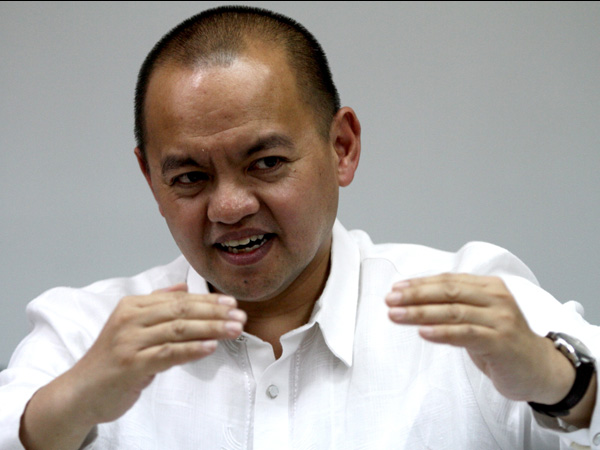
Supreme Court Associate Justice Marvic Leonen. (File photo from Philippine Daily Inquirer)
Compelling a drug suspect to open his door at home to the police is a coercive process in violation of the Anti-Torture Law (Republic Act 7945), Supreme Court Associate Justice Marvic Leonen said on Tuesday during the oral arguments on petitions involving extrajudicial killings.
The petitioners – which included human rights lawyers, relatives and survivors of the war on drugs – said that under “Project: Double Barrel” a person could be subjected to a case build-up and negation if they would refuse to open the door to law enforcers knocking at their houses.
“Project: Double Barrel” is the Philippine National Police Anti-Illegal Drugs Campaign Plan, which is contained in Memorandum Circular (CMC) 16-2016. The plan includes “Project Tokhang.”
As the circular states: “Any person suspected to be involved in illegal drug trafficking who denies or refuses the house to house visitation shall be referred to the Anti-Illegal Drug Units for immediate case buildup and negation.”
During the oral arguments at the Supreme Court, Associate Justice Marvic Leonen asked the petitioners: “If the suspect does not open the door, what happens to the suspect?”
Human rights lawyer Jose Manuel Diokno said: “According to the circular, he should be immediately subjected to negation.”
“Actually there are two options: One is a case build-up and two negation. So, there is a threat. If you do not open the door, something will happen to you,” Leonen said, to which Diokno agreed.
At that stage, Diokno said the suspect can be considered under a custodial investigation.
Any person under custodial investigation should be accompanied by counsel, Leonen pointed out, citing Republic Act No. 7438 – “An act defining certain rights of person arrested, detained or under custodial investigation as well as the duties of the arresting, detaining and investigating officers, and providing penalties for violations thereof.”
With the threat of a case build-up or negation under CMC, Leonen asked petitioners if the suspects could be considered under custodial investigation. Diokno said yes.
“Therefore, can you consider it as a violation of RA 7945?” Leonen asked.
Diokno said yes.
“RA 7945 is the Anti-Torture Law that when somebody is under a coercive process to make the person actually do something as in this case, open the door to the police, let them in, make them do whatever, then, therefore under a pain of coercion, then, that fact is torture, according to the law. Is that not correct?” Leonen said.
“Yes, your honor,” Diokno said.
Under the PNP Manual on Anti-Illegal Drugs Operation and Investigation, a case-build up consists of a “series of activities in anti-drug operation such as but not limited to casing, validation, surveillance, verification etc, up to the time of completion of necessary information as basis for possible operation.”
Under the same manual, a “negation operation” calls for a “seizing officer” who will be “responsible for the inventory and initial custody of all drug and non-drug evidence during the anti-drug operations.“
“These will later be turned over to the investigation officer or any member of the apprehending team, as the case may be, up to the Crime Laboratory for laboratory examination and proper disposition,” the manual says. /atm